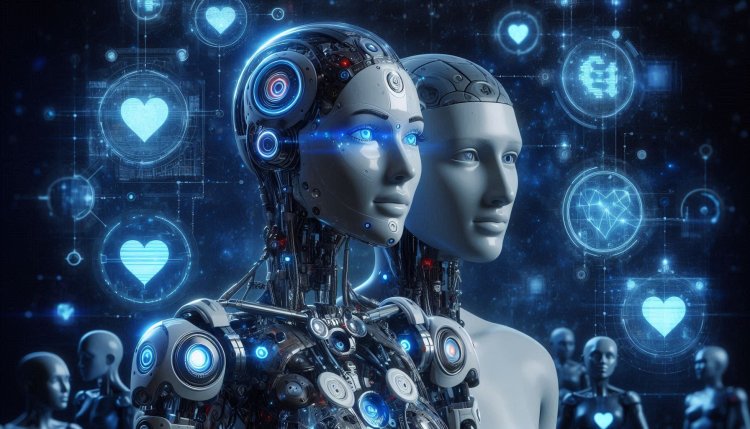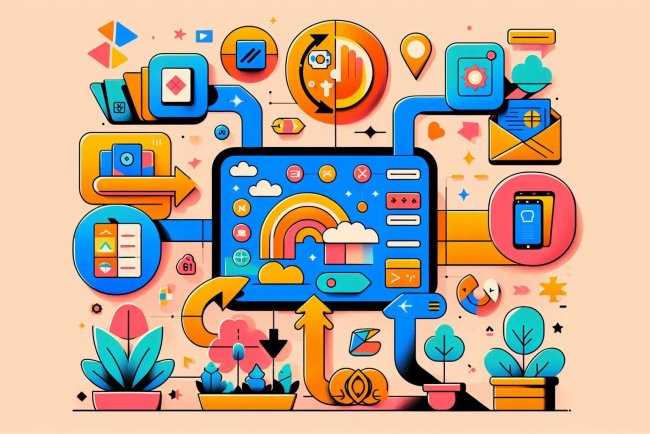AI relationships: Virtual companions and emotional intelligence
Explore the intricacies of AI relationships, virtual companions, and emotional intelligence. Discover how technology is changing the way we connect.

AI Relationships: Virtual Companions and Emotional Intelligence
Artificial Intelligence (AI) has made significant advancements in recent years, allowing for the development of virtual companions that can interact with users in a human-like manner. These virtual companions have the potential to form meaningful relationships with users, providing emotional support and companionship.
Emotional Intelligence in Virtual Companions
One of the key aspects of AI relationships is the integration of emotional intelligence into virtual companions. Emotional intelligence enables AI systems to understand and respond to human emotions, allowing them to provide more personalized and empathetic interactions. This is crucial for building meaningful relationships with users and fostering a sense of connection.
Virtual companions with emotional intelligence can recognize facial expressions, tone of voice, and other cues to infer the emotional state of the user. They can then tailor their responses accordingly, offering comfort, encouragement, or companionship as needed. This ability to empathize with users and adapt to their emotional needs is a defining feature of AI relationships.
Benefits of AI Relationships
AI relationships offer several benefits, including companionship for those who may be socially isolated, emotional support for individuals going through difficult times, and personalized interactions that cater to the unique needs of each user. Virtual companions can provide a listening ear, offer words of encouragement, and even engage in activities with users to alleviate feelings of loneliness or boredom.
Moreover, AI relationships can help individuals develop their emotional intelligence and interpersonal skills. By interacting with virtual companions that exhibit empathy and understanding, users can improve their own emotional awareness and communication abilities. This can have a positive impact on their relationships with others in the real world.
Challenges and Considerations
While AI relationships hold promise for enhancing emotional well-being and providing companionship, there are also challenges and considerations to be mindful of. One concern is the potential for users to become overly dependent on virtual companions for emotional support, leading to a reliance on AI rather than human relationships.
Another challenge is ensuring the ethical use of AI in relationships, particularly in terms of privacy and data security. Virtual companions may have access to sensitive information about users, raising questions about data protection and confidentiality. It is important for developers to prioritize user privacy and establish clear guidelines for the use of AI in forming relationships.
Future Directions
Looking ahead, the field of AI relationships is likely to continue evolving, with advancements in emotional intelligence, natural language processing, and machine learning enhancing the capabilities of virtual companions. These developments may lead to more sophisticated and nuanced interactions between users and AI systems, further blurring the line between human and machine relationships.
Researchers and developers are also exploring the potential of AI relationships in various domains, such as mental health support, elder care, and education. Virtual companions could play a role in providing therapy, monitoring well-being, and assisting with learning tasks, offering valuable support services to individuals in need.
Conclusion
In conclusion, AI relationships have the potential to transform the way we interact with technology and form connections with virtual companions. By integrating emotional intelligence into AI systems, developers can create virtual companions that offer empathy, understanding, and companionship to users, enhancing their emotional well-being and quality of life.
As AI technology continues to advance, it is essential to consider the ethical implications and societal impact of AI relationships, ensuring that they are used responsibly and respectfully. By harnessing the power of AI to foster meaningful connections and support individuals in need, we can unlock the full potential of virtual companions in enhancing our emotional lives.
What's Your Reaction?

















